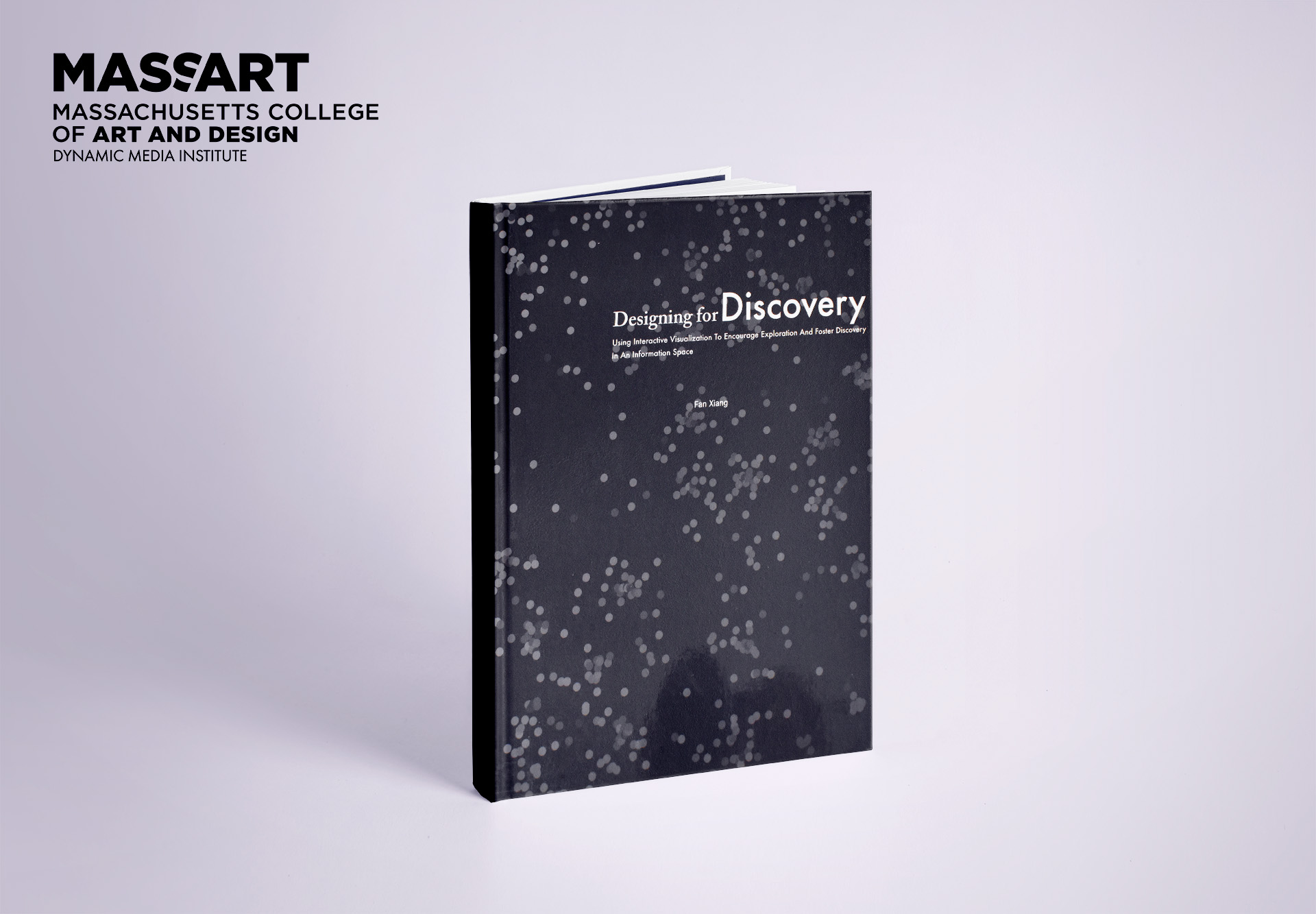Fan Xiang, MFA ’11
thesis abstract
For centuries, people have spent a great deal of time traveling the vast corners of the unknown world in hopes of furthering their understanding and knowledge of it. Not only did their journeys help them discover things about the world they inhabited but it also gave them an important insight into who they were as human beings.
Over the years this natural instinct for discovery has not only increased but has also evolved. In today’s digital age, much of our exploration begins as an online search experience of the vast and ever growing virtual world. This virtual world which I refer to as “Information Space” vastly differs from its real–world counterpart — the physical space.
Discovery in an information space is also far from any real world experience. Information space is characterized by its lack of familiar landmarks (such as street signs or stars) for orientation and is instead populated with huge amounts of constantly changing “data”. The question that then arises is how can one navigate through this space in ways that will allow for meaningful discoveries to occur.
My thesis, Designing for Discovery, investigates the many ways in which data visualization can be used to interpret data that pervades the information space. Through a variety of case studies that culminate with “Forest Growth Visualizer”, I explore ways in which this data can be assigned perceptible visual forms. I also design entire experiences around this space to encourage user exploration and foster unexpected discoveries.


